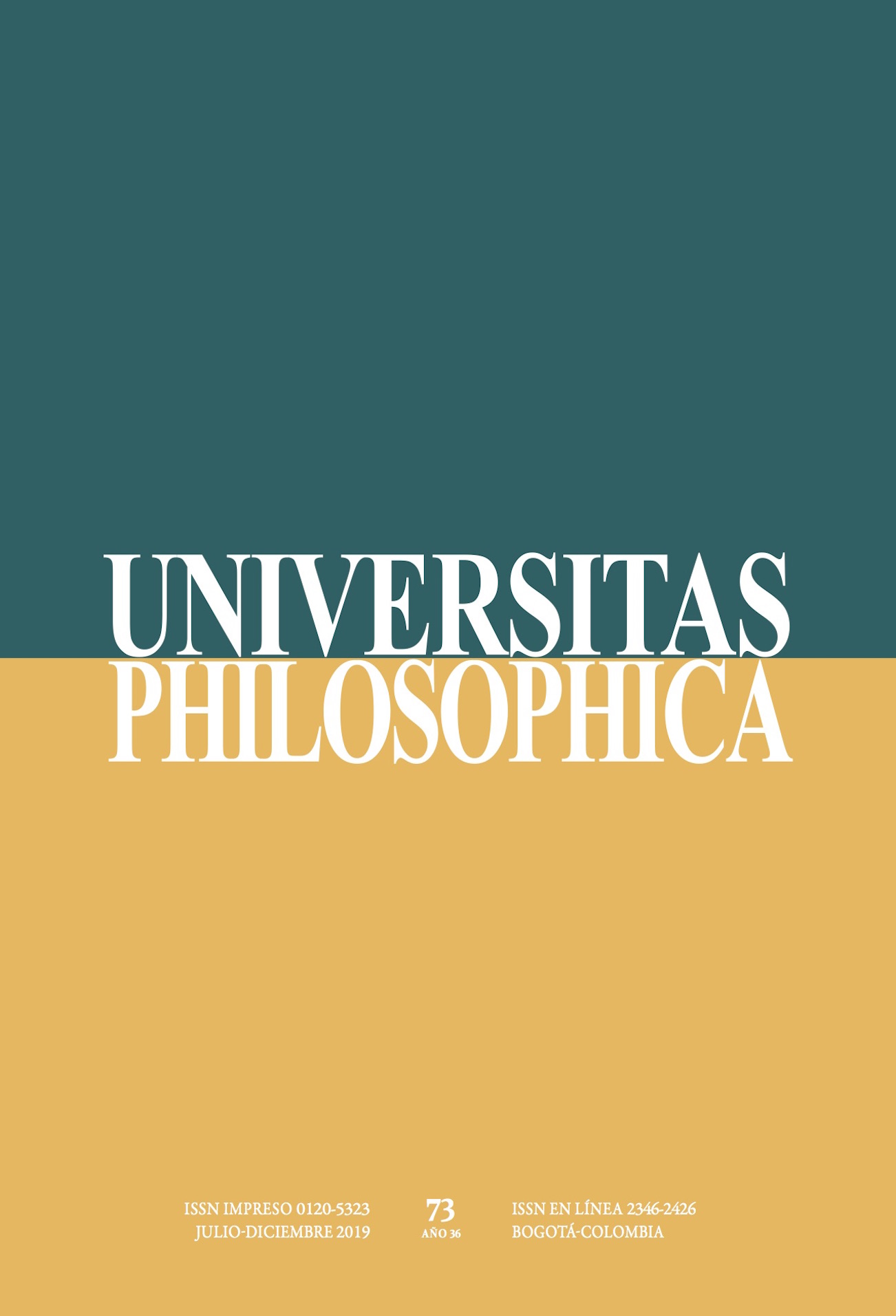Resumen
La Estrella de la Redención se postula como una crítica a Hegel y su lógica de la Aufhebung, pero en esta obra Rosenzweig no niega la verdad del sistema hegeliano, sino su absolutización. Desde ese punto de vista, Rosenzweig retoma “otro” Hegel: el de sus Escritos de juventud, atendiendo a su concepción del amor, y el de la Fenomenología del espíritu, en una búsqueda de sistema ligada a la experiencia. Desde un Hegel particular, aunque más allá de él, Rosenzweig construye una filosofía relacional, donde los elementos no se superan sino que conviven entre sí. Analizaremos la fractura de la Totalidad en la triada Dios-Hombre-Mundo, para estudiar luego su relación efectiva a través del amor, y el vínculo necesario entre judaísmo y cristianismo como modo de anticipar la Redención; vínculo desde el cual Rosenzweig sostiene, en contra en este punto de Hegel, que ambas religiones comparten un contenido común, en una relación simbolizada en la letra “y”.
Fink, E. (2011). Interpretaciones fenomenológicas de la Fenomenología del espíritu. (Trad. I. Ortega Rodríguez). Barcelona: Herder.
Gordon, P. (2003). Rosenzweig and Heidegger. Between Judaism and German Philosophy. Los Angeles: University of California Press.
Görtz, H-J. (1984). Tod und Erfahrung: Rosenzweigs „erfahrende Philosophie“ und Hegels „Wissenschaft der Erfahrung des Bewußtseins“. Düsseldorf: Patmos.
Hegel, W. (1978). Escritos de juventud. (Trad. Z. Szankay & J. M. Ripalda). Ciudad de México: Fondo de Cultura Económica.
Hegel, W. (2000). Fenomenología del espíritu. (Trad. W. Roces & R. Guerra). Ciudad de México: Fondo de Cultura Económica.
Hyppolite, J. (1974). Génesis y estructura de la Fenomenología del espíritu de Hegel. (Trad. F. Fernández Buey). Barcelona: Ediciones Península.
Mosès, S. (1982). Système et Révélation. La philosophie de Franz Rosenzweig. Paris: Éditions du Seuil.
Navarrete, R. (2016). „Der Jude, der in deutschen Geist macht.“ Das Hegelbuch Franz Rosenzweigs und seine Wirkung. Naharaim, 10(2), 273-302. doi: 10.1515/naha-2016-0018
Pollock, B. (2014). Franz Rosenzweig’s Conversions: World Denial and World Redemption. Bloomington: Indiana University Press.
Rosenzweig, F. (1976). Der Mensch und sein Werk. Gesammelte Schriften. Den Haag: Martinus Nijhoff.
Rosenzweig, F. (1997). La Estrella de la Redención. (Trad. M. García-Baró). Salamanca: Ediciones Sígueme.
Rosenzweig, F. (2007a). Carta a Friedrich Meinecke. En: Lo humano, lo divino y lo mundano (pp. 83-88). (Trad. M. C. Burello). Buenos Aires: Araucaria.
Rosenzweig, F. (2007b). Hegel y el Estado. En: Lo humano, lo divino y lo mundano (pp. 81-82). (Trad. M. C. Burello). Buenos Aires: Araucaria.
Rosenzweig, F & Rosenstock, E. (2017). Cartas sobre judaísmo y cristianismo. (Trad. R. Navarrete Alonso). Salamanca: Sígueme.

Esta obra está bajo una licencia internacional Creative Commons Atribución 4.0.
Derechos de autor 2019 Shirly Mariel Catz



